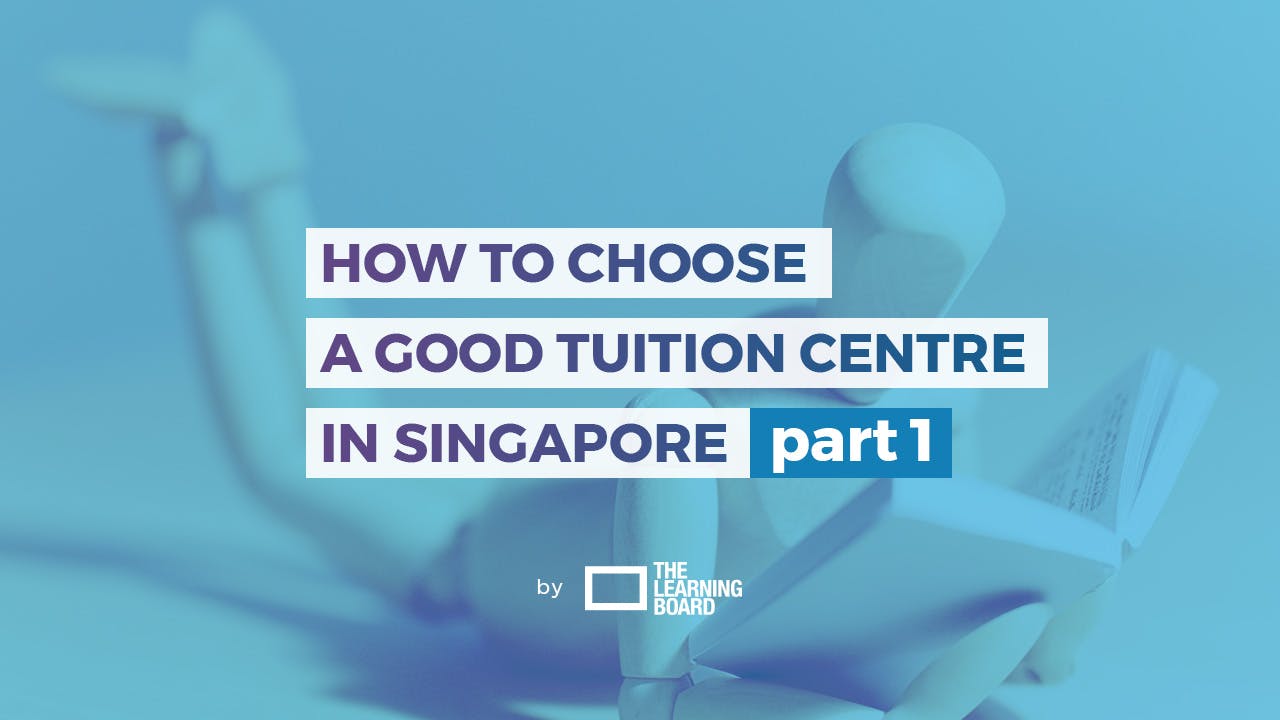This post will not tell you to look for a centre which is ACRA and MOE registered, has a good track record or employs ex-teachers. Those details are good to know, but they are insufficient. If it’s that simple (by comparing a few metrics), why wouldn’t there be a tool that automates the process and eases your pain yet? This series will walk you through the tuition centre searching process with essential and critical insights.
After the first step of avoiding common mistakes in choosing a good tuition centre in Singapore, the next step is shortlisting centres. According to Ministry of Education (MOE, 2017), there are over 800 tuition centres in Singapore. That number excludes a large portion of private tutors who don’t register with MOE. So how are you going to find a centre that can help your child improve his or her academic results? Consider the following tips when you search for tuition centres.
Relax on timing, location and budget
This may sound counter-intuitive, but it eventually helps to relieve stress in your search. We’ll see why. First, if you want to rigorously fit a tuition class into a few predefined time slots, you’ll have to do a lot of cross-checking of timetables from different centres. In reality, many centres have classes that are not listed on their websites or are able to arrange custom timetable for you. Call the centre and get someone to help you with timing.
Second, limiting your search to a small location radius reduces your options tremendously. If you drive, location shouldn’t be an issue (of course you wouldn’t want to drive cross the island). If you take public transportation, remember that distance is not proportional to travelling time. Sometimes you can reach a further location in shorter time via a direct bus or train. Use Google Map to search for routes.
Finally, work out a budget range instead of a fixed amount. Tuition fee is not simply remuneration to tutors. It also consists of rental, facilities, marketing and other operating cost. So be prepared for a fluctuation of fee across different centres. However, some centres offer packages at a discounted price. You can enquire them to see if they have such options.
Look for actual class photos
Photos give you a quick look and feel about a particular centre in the shortest time. As you browse through different pages, pay attention to actual photos of the tuition centres. From there you can roughly feel how class atmosphere is like. Note that only authentic photos count. Stock photos only serve illustration purpose and give you no insight about the centre. Look at how class is conducted, the student’s emotional state and interactions between classmates and teacher.
Favor improvements over final results
Of course most parents want their kids to score A after attending classes at a tuition centre. This is why many centres put up some kind of leaderboard that displays students scoring A in their exams. It’s a good sign but it does not tell the full performance of a centre without information such as the total number of students or how they first scored when they enrolled. Nevertheless, the real purpose of going to a tuition centre is to improve one’s skills and knowledge. High scores come naturally as the results of such improvements. Furthermore, each child has his or her own capability. An improvement from C to A from a student who doesn’t have talent in English is as plausible as a constant A from a talented one. You may not find a comprehensive report on the students’ scores before and after joining a tuition centre. But whenever you can, pay attention on how a centre values their students’ improvements.
Look for small class size
Have you ever wondered why you had to embark on this tuition seeking journey? First, let’s look at how top universities like National University of Singapore (NUS) conduct classes. Beside 3-4 hours lecture time (for example, large hall of 50 students), some subjects in NUS require 3 or more hours of small group sessions every week. Those sessions (or tutorials) enable tutors to drill into problem-solving and also allow students to raise questions and clear doubts. In primary and secondary schools, teachers are unable to give adequate attention to each student as the class size is big. Every class is a race against the syllabus. In that speed, some students get lost and lack a chance for clarification. Those moments accumulate to the point where students cannot grip the foundation of a subject anymore. That’s why you would not want a crowded tuition class either. It’s advisable that the tuition class size is capped at 10 for these important reasons.
Book your consultation or trial class before visiting a centre
Many centres offer free trial class or one-to-one consultation. You can leverage on this to find out more about the centre before deciding to enroll. The fastest way to book an appointment is to call the centre directly. Alternatively, you can look for a contact form on the centre’s website and leave your phone number to receive a call-back. If possible, bring along your child’s latest paper for the tutor to have a look to better understand your child’s problematic areas. During this call you can also enquire about the programme fee and details.
After you finish your search (online or through recommendations) and shortlist the results based on the tips mentioned above. Proceed to part 2 to know what to do during and after your visit to a tuition centre.


